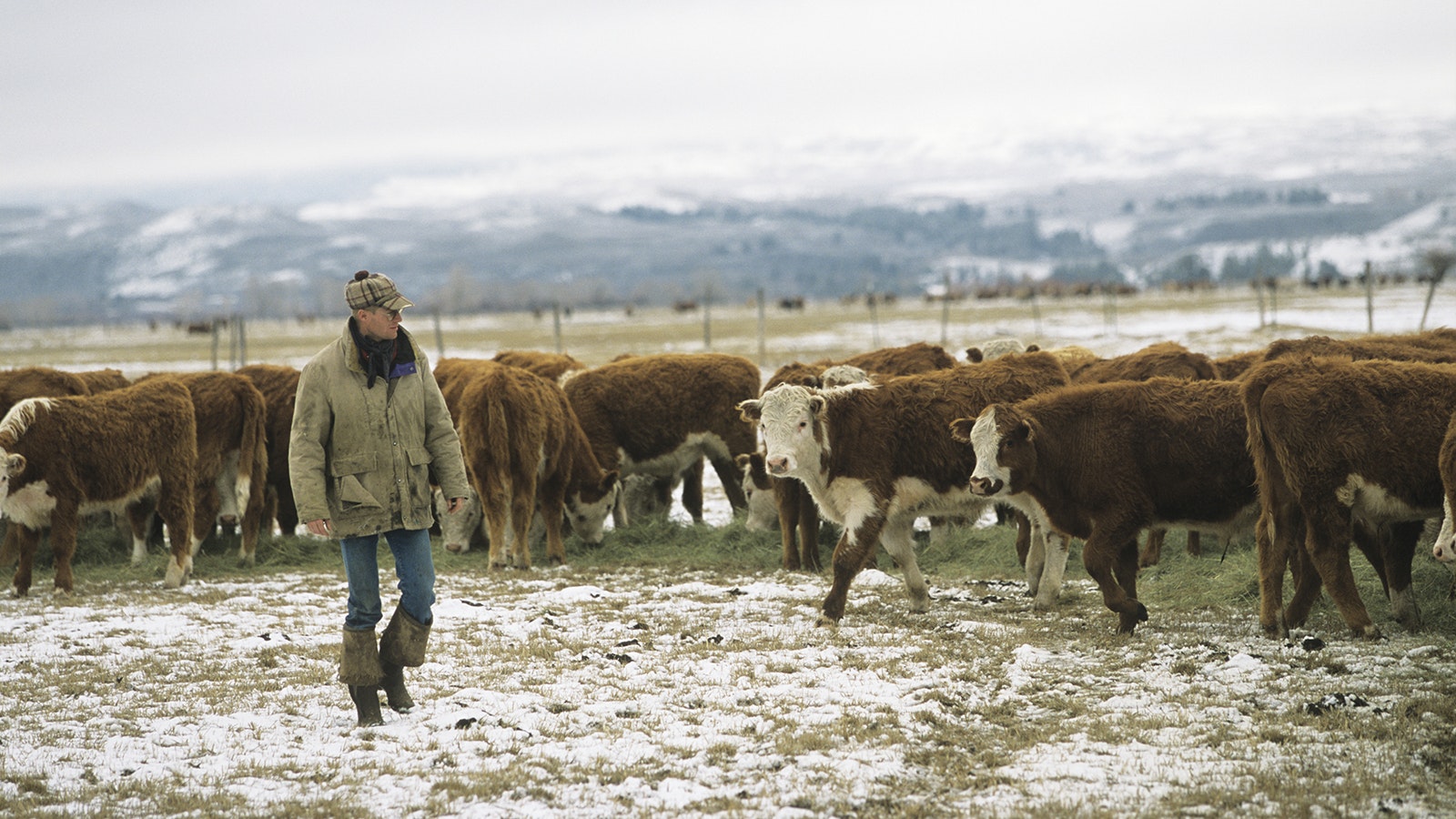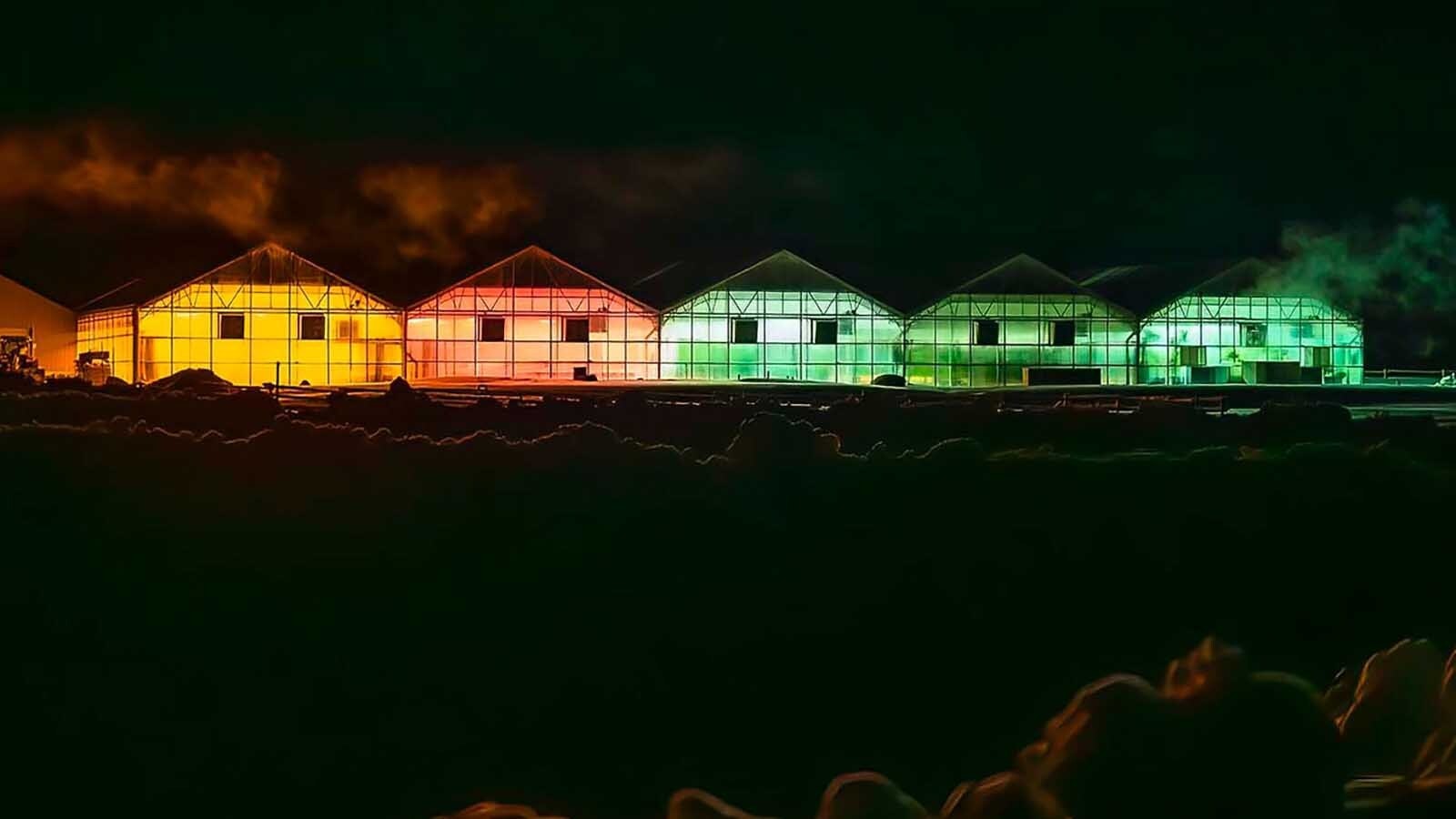Shumway Farms is the last dairy standing in a Western Wyoming valley that used to have so many it was famously known as “Little Switzerland.”
Its survival is a tale of perseverance and dogged stubbornness. But it’s also one of reinvention and thinking outside of the box.
“The valley is full of dairy history,” fifth-generation dairy farmer Jody Shumway told Cowboy State Daily. “I was raised on a dairy farm, and so I started my own dairy in 1980.”
The dairying history of the Shumway family, though, starts long before that in 1885.
That’s when Jody’s great-great-grandparents, Friedrich and Annie Wolfli (pronounced Wolfley), immigrated to the United States, ultimately settling in the Star Valley. They were part of a wave of Swiss immigrants that settled the valley. They also brought with them the art of making authentic Swiss cheese, earning the valley the nickname Little Switzerland.
Jody grew up in a large family, but wasn’t the eldest son, so the family’s dairy farm didn’t pass to him. Instead, he and his new wife started their own dairy operation in the 1980s.
Rock And A Hard Place
Unbeknownst to the Shumways, who were just getting a start on life, the 1980s was the beginning of the end for Star Valley’s thriving dairies.
“In the ’80s in Star Valley, it was all about if you were going to be anything in life, you had to milk a cow,” Shumway said. “Because that was the way you were raised. So, everybody was a dairy farmer, and that was just the cool thing to do.”
But the economy kept turning up the screws on the dairy industry, Shumway said.
“Dairy just kept falling and falling,” he said. “And then, the ’90s came, and a lot more dairies fell out. By the 2000s, there were, like, four dairies left out of 100 and something. So in a 30-year period we lost 100 dairies. That was a sad day when all the dairies quit.”
Nationwide, America had 648,000 dairies in 1970. By 2022, there were just 24,470 remaining. In Star Valley, it’s just one — Shumway Farms.
Milking Cows And Dreaming Dreams
Shumway could have given up. Sometimes, he thinks maybe he should have. But he loved dairy farming. And he didn’t want to quit. He was just too stubborn.
“I never worked for anybody else, but I did other stuff,” he said. “Construction, insulation work — we did just whatever we could do for 30 years.”
It made for incredibly long days.
Shumway had to get up early to milk the cows in the morning. Then he’d go out and work on whatever jobs his side business had going. After that, he’d come home to milk cows again and finish off anything else the farm needed.
“I was hard-headed enough, I guess, that I just kept going,” Shumway said. “We just didn’t know any better. We just kept subsidizing it and made it work.”
One thing Shumway did have time to do, though, was think. Milking cows is good thinking work. So is driving to job sites in between milking cows.
And what he thought about was a little dream.
What if he could sell his own milk direct to consumers? Cut out the middleman and keep the entire value chain for his farm.
Competing With Grocery Stores
To do that, Shumway realized he was going to need help. It was too much work for one person.
Fortunately, his son Jon was interested in the dairy farm. The two invested in all the equipment they needed to pasteurize the farm’s milk and bottle it up for direct sale to consumers.
“We did that for almost three years,” Shumway said. “But you know, we were just breaking even, and we were working our butts off.”
Shumway was on the right track with direct-to-consumer sales.
Those have spiked 28% from 2023 to 2024, in large part thanks to Wyoming’s Food Freedom Act. Direct-to-consumer sales allow agricultural producers to set prices that cover their cost and keep more of the value chain for their families.
But where it is really helpful to agricultural producers is with premium products. Small family operations can’t really hope to compete with the scale of grocery stores with their mass-produced goods.
“We were selling our milk for 3 bucks a gallon and our cost was $2 to produce it,” Shumway said. “We’d have to produce it on a very large scale, and that’s what the whole world’s about now.”
One day, Shumway got into a wreck with a load of milk. Losing the whole load of milk was the last straw. Shumway shut the dairy down, figuring it was a hobby farm from there on out.
Food Freedom Act Was Like The Cavalry
About the same time, Wyoming did something that was a game-changer for Shumway Farms. It passed the Food Freedom Act in 2015, and then in 2017 amended the act to include raw milk sales.
“That’s what really spurred us on, the Food Freedom Act that says, ‘Oh, we can sell raw milk,’” Shumway said. “And so, we went down that road in the beginning, because you didn’t need all this expensive equipment and it was more profitable.”
Prior to then, Shumway Farms had made a few sales of raw milk under the herd-share system, a complicated system that was impractical and cumbersome.
With the Food Freedom Act, Shumway Farms started to take off, and his sons, including Jon, started thinking of other things they could make with the milk to sell: Premium products that would be worth more than mass-produced grocery store items.
Ice cream was the first product, and it put them on the map with tourists. They would come out to see the dairy farm and hug a cow, then enjoy a little hand-scooped ice cream in flavors like Salt River Caramel, Cottonwood Candy, Love Potion No. 9 and Midnight Moos.
Here Comes The Skyr
Eventually, the Shumways got an idea for another product that’s taken off, one they believe they can scale for regional distribution across state lines.
The product is skyr, a thick, creamy style of yogurt that originated in Iceland 1,000 years or more ago. Skyr is similar to strained yogurts, but it’s thicker and smoother even than Greek yogurt.
In Iceland, skyr is made with skim milk, while Shumway Farms makes its skyr from whole milk.
“It concentrates down to 12-15% butter fat after you go through our process, because we don’t skim any cream off it,” Jon said. “So that’s why it’s top tier.”
Since it wasn’t true Icelandic skyr, Jon decided they needed a different name for it. So it’s called Wyomings Skyr yogurt, to distinguish it from all other versions of skyr.
Like Shumway Farm’s ice cream, Wyoming Skyr comes in several flavors, like maple, huckleberry, lemon, raspberry, coconut and plain. There will no doubt be more flavors ahead as Shumway Farms develops its newest product.
“Hopefully that’s going to stand out in the marketplace as a very unique product,” Jon said. “It’s sweetened with pure maple syrup. And all our colorings and flavorings are all natural. So purple carrot extract, red beet juice, spiraling extract.
“And we use this in our ice creams as well, so we’re really trying to stick to healthy choices.”
Back To Full Time
So far, so good, Shumway said.
He’s finally been able to quit the side job and focus solely on Shumway Farms, just as he’d once envisioned back when he started the farm in 1980 about 44 years ago.
Not only that, but he and Jon are seeing ways they can expand the delivery of their products to new markets in Idaho.
They’ve been covering territories in southwest Wyoming with raw milk and pasteurized ice cream, but raw milk can’t be sold across state lines, and ice cream requires freezer trucks, not just refrigeration, making it difficult for them to scale.
The skyr, which is also a pasteurized product, is a little bit easier. It doesn’t have to be frozen, just refrigerated, making it easier to scale up. They’re already talking with some businesses in Idaho and hope to have a deal to announce there soon.
The dairy will also continue to sell its raw milk locally, using drop points in Thayne, Etna and Alpine, as well as Bridger Valley, Green River, Rock Springs and Evanston. Here too, though, they’ve found a way to make a premium product stands out.
First, their milk comes from cows that Shumway Farms has been breeding to predominantly have the A2 beta-casein, a milk protein that studies suggest is easier for many to digest than the A1 form of that protein.
The dairy also voluntarily tests its raw milk for bacteria so it can be certain the milk is uncontaminated.
These types of quick tests weren’t readily available back when milk pasteurization became law and the interstate sale of unpasteurized milk was outlawed, Shumway said. But they are readily available now, and he believes they ought to become the standard for the raw milk industry.
“This way we don’t fret, we don’t worry about it,” he said. “If that milk is on our shelves, we know it’s safe to drink, because we have tested it.”
The other thing Shumway no longer loses sleep over now is how to pass on the legacy of the Shumway family’s farm to a sixth generation in the Star Valley.
Thanks to Wyoming’s Food Freedom laws and a little out-of-the-box thinking, the last remaining dairy born from Star Valley’s Little Switzerland in the 1880s has found a path forward into the foreseeable future.
Contact Renee Jean at renee@cowboystatedaily.com
Renée Jean can be reached at renee@cowboystatedaily.com.






















